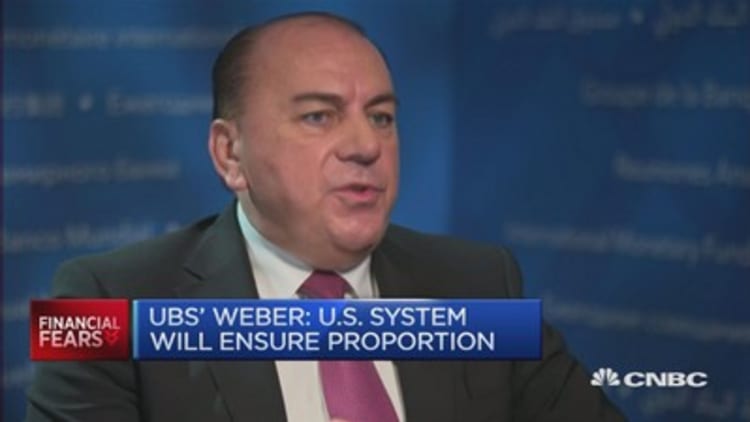
Axel Weber, UBS chairman and a former policymaker at the European Central Bank (ECB), has warned today's incumbents that monetary intervention is causing international spillovers and major disturbances in global markets.
"They (central banks) have taken on massive interventions in the market, you could almost say that central banks are now the central counterparties in many markets. They are the ultimate buyer," Weber told CNBC on the sidelines of the annual meetings of the International Fund and the World Bank in Washington D.C.
Weber, who was president of the German Bundesbank between 2004 and 2011 and was also a member of the ECB's Governing Council, referenced the housing bubble leading up to the 2008 financial crash and said central banks had strayed from their core mandate.
"Investors have been driven into investments where they have very little capability for dealing with what is on their plate and I think that is a sure reminder of where we were in a different asset class in 2007," he said.
"So I think the central bankers need to be very careful that they do not continue to produce disturbances in the markets, which they acknowledge - it's a known side effect - but the perception that the underlying impact of monetary policy outweighs the potential side effect in my view is starting to be wrong," he added.
Since the global financial crash of 2008, central bank policy has focused on buying up bonds in large quantities and cutting interest rates to record lows. The Federal Reserve has since looked to unwind its own policy which focused on the Treasury market and the yield curve, but the Bank of Japan and the ECB's large-scale bond-buying programs continue.
"I don't think a single trader can tell you what the appropriate price of an asset he buys is, if you take out all this central bank intervention," Weber warned, adding that it often meant investors were making bad choices with where to put their money.



